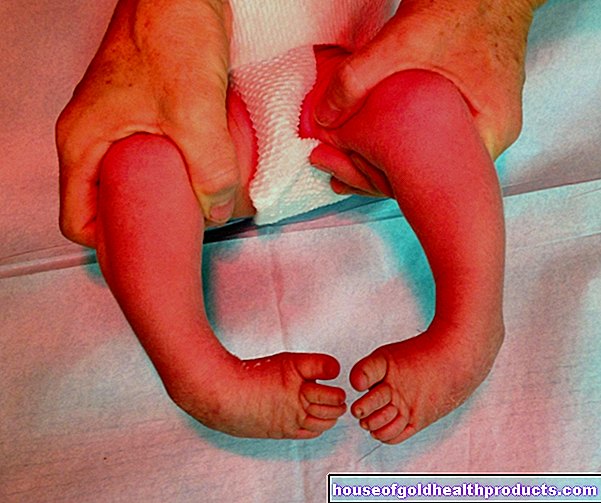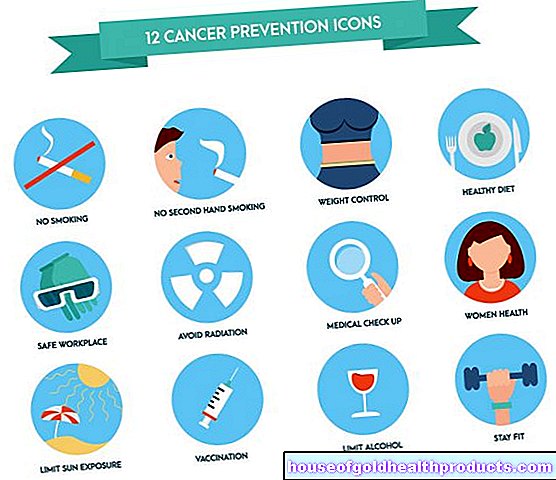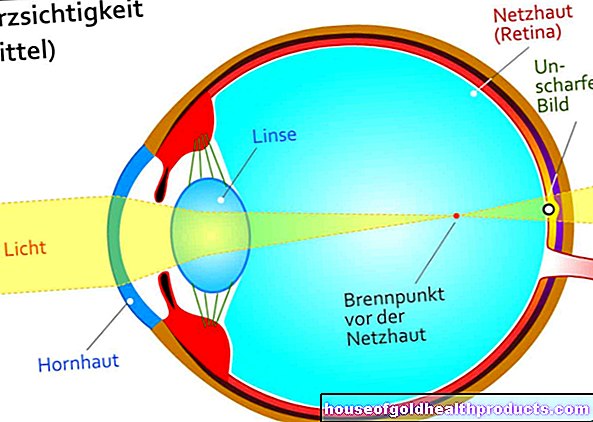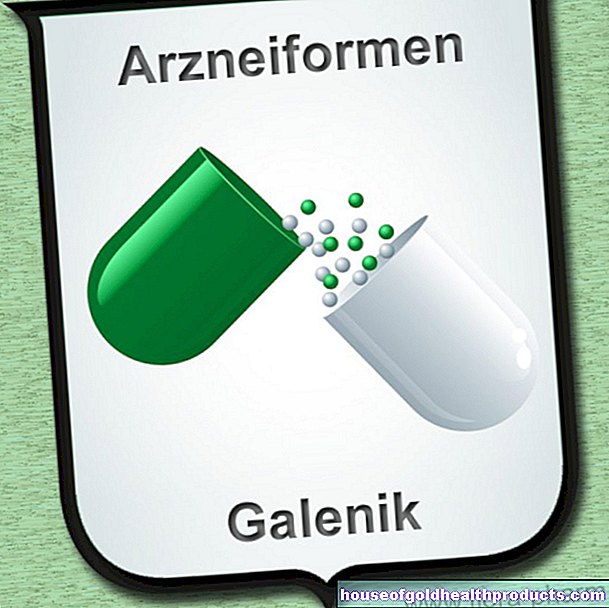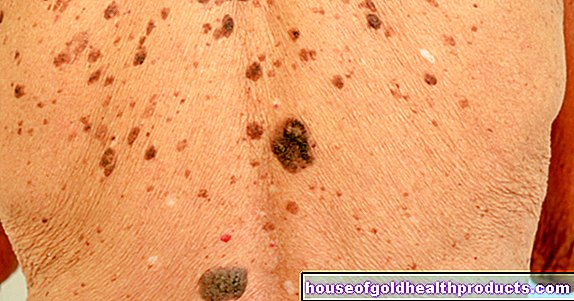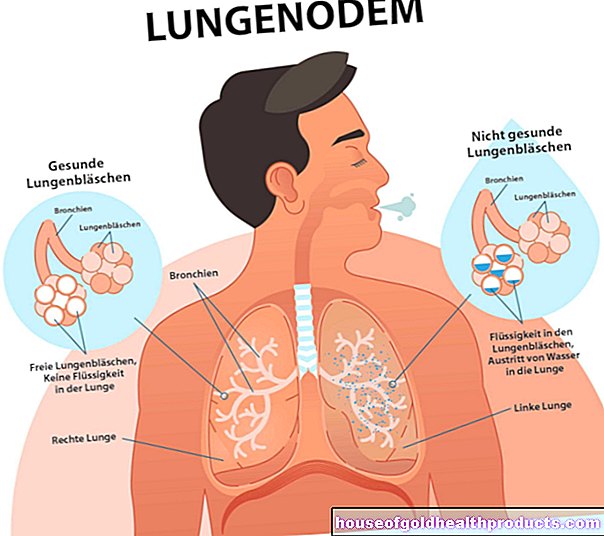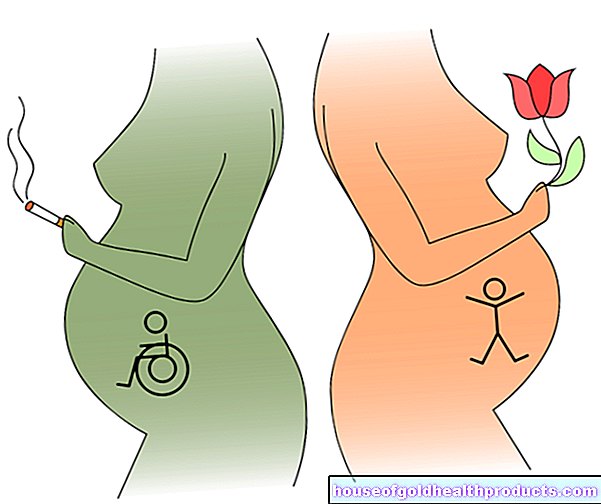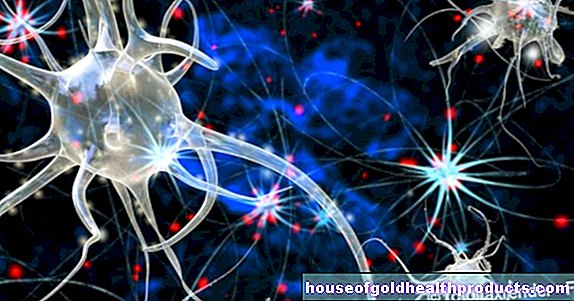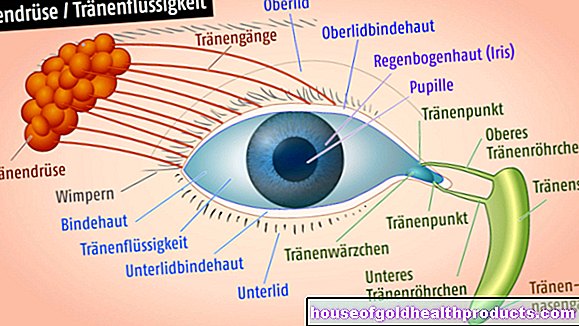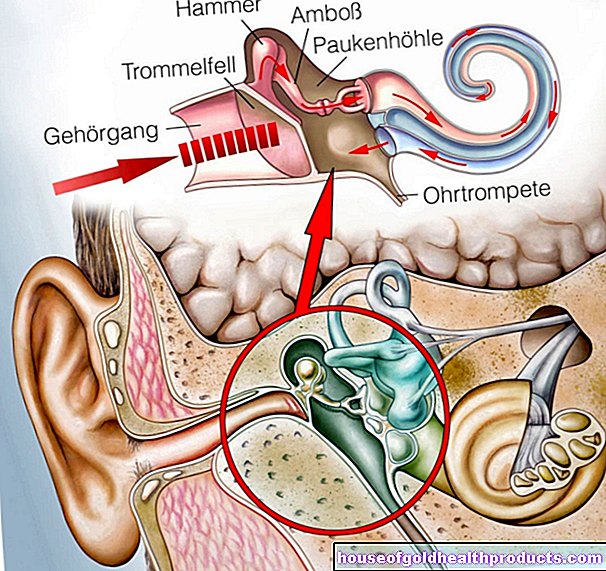Not every anorexic is too thin
All content is checked by medical journalists.When young people become hungry pangs, the suspicion of anorexia quickly arises. The situation is different when overweight people lose weight drastically. They may also have severe eating disorders.
Anorexia is a mental disorder that is not all associated with being very low in weight. Also typical is the extreme fear of gaining weight again, the obsession with taking in as few calories as possible, and a disturbed body image that leads to the illusion of more physical volume than is actually available.
Atypical anorexia
All of these psychological factors appear to be found in some adolescents who are normal or even overweight but who have previously lost a lot of weight. Psychologists refer to this phenomenon as atypical anorexia nervosa. Although those affected are not directly threatened with starvation, the psychological stress is just as high for them as for patients with typical anorexia - and their physical health is also threatened due to malnutrition.
Not too thin, but sick
An Australian study led by Susan Sawyer from Melbourne University draws attention to this phenomenon. The researchers examined a total of 256 adolescents who had been referred to the university clinic with suspected eating disorders. The researchers found classic anorexia in a total of 118 patients. However, 42 of them suffered from atypical anorexia. In terms of weight, they did not meet the criteria of anorexia, but showed the other typical signs - and had previously lost more than ten percent of their body weight.
Longer illness career
Compared to their typical anorexic fellow sufferers, they were previously significantly more overweight (71 percent versus 12 percent), they had lost more weight (17.6 kg versus 11 kg) and their eating disorder had been going on for longer (13.3 versus 10, 2 months). In terms of their body image and problematic eating behavior, their psychological distress was even higher than that of the participants with typical anorexia. "The intense stress that patients with atypical anorexia experience could arise from the gap between current weight and ideal," the authors speculate. Another reinforcement for the high psychological stress could be negative experiences that those affected had already had because of their overweight.
Physical and emotional consequences
A large number of atypical anorectics also suffered from significant physical consequences of the eating disorder - such as a slowed heartbeat, reduced body temperature or a lack of menstruation. More than 40 percent had to be treated as an inpatient. Mental comorbidities such as depression or anxiety disorders occurred almost as often in them as in underweight participants in the study. "Atypical anorexia is just as threatening a disease as typical anorexia," warn the researchers. The results showed the importance of being vigilant about weight loss in adolescents - regardless of body weight.
Atypical anorexia becomes more common
Atypical anorexia also seems to be becoming more and more common: the researchers had already discovered in previous studies that the proportion of eating disorders who have extreme control over their eating behavior, but who are not underweight, had risen dramatically within six years. Doctors should therefore review the various criteria for an eating disorder in all adolescents who have lost a lot of weight, even if they are (still) normal or overweight.
Therapy started later
There is much to suggest that if left untreated, these patients are also threatened with underweight. With them, however, the eating disorder is overlooked for a longer time due to their external appearance. Two of the participants had suffered from symptoms of anorexia for several years, but had only been treated when they had slipped into underweight. Such a disease course is problematic - the longer an eating disorder remains untreated, the worse the chances of recovery. (cf)
Source: Susan M. Sawyer et al .: Physical and Psychological Morbidity in Adolescents With Atypical Anorexia Nervosa, Pediatrics, March 2016
Tags: baby toddler magazine Diagnosis